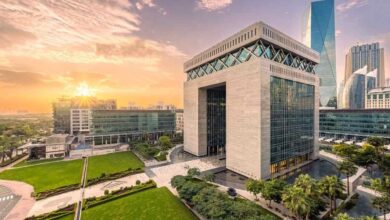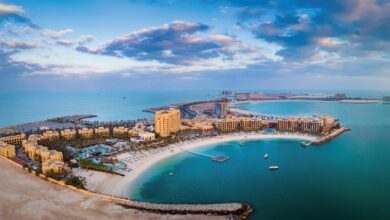
- Despite global market headwinds, investors in the Gulf Cooperation Council (GCC) show increased appetite for global real estate investment.
- The relatively stable market conditions and strong economic situation in the GCC region boost investor confidence and interest in discounted investment opportunities abroad.
- The recovery in oil prices has contributed to increased consumer confidence and positive investor sentiment in the region, leading to more capital being invested in international real estate.
- Portfolio strategies are shifting towards new economic sectors with higher growth potential, such as residential and logistics, as well as alternative sectors like data centers and healthcare assets.
As economies in the Gulf Cooperation Council (GCC) continue to grow throughout 2023, regional investors’ appetite for global real estate investment is likely to grow, despite a period of increased market headwinds globally, a new report found.
The global real estate market is facing challenges due to rising inflation, high energy costs, and strict monetary policy, which is affecting investor confidence worldwide. This is not only causing delays in decision making, but also reducing liquidity in international real estate markets, further contributing to an uncertain global outlook as predicted by the International Monetary Fund (IMF).
However, the Middle East, particularly the GCC region, is defying this trend as its relatively stable market conditions and strong economic situation boost market confidence and increase interest in discounted investment opportunities abroad, JLL found in its latest report The Resurgence of Outbound Real Estate Investment from the GCC’.
Additionally, the strong recovery in oil prices in mid-2020 has also contributed to increased consumer confidence and positive investor sentiment in the region, resulting in increased capital being invested in international real estate.
“Although oil prices have seen a partial reversal in recent months, they remain elevated in comparison to recent history and are unlikely to significantly impact investor confidence in the region,” said the UAE-based firm’s Executive Director of International Capital Coverage Fadi Moussalli in a statement on Monday.
“Therefore, the willingness of investors to take advantage of discounted buying opportunities will continue to emerge in the face of the uncertain economic outlook in Europe and the US and moderated competition in bidding.”
Diversifying portfolios
JLL anticipates that in the future, portfolio strategies will shift towards new economic sectors.
In the past, the office and hotel sectors have been popular choices in cities such as London, Paris, and New York, but there has been a shift towards sectors with higher growth potential, such as residential and logistics, which have collectively accounted for more than 40 percent of global investments over the past two years.
Investors are also paying more attention to alternative sectors like data centers and healthcare assets, indicating a departure from strategies of the previous decade.
These recent efforts to diversify portfolios align with broader themes that were also emphasized during the pandemic.
Despite global economic growth slowing, demand for industrial and logistics space remains strong and the limited availability of such space is expected to continue supporting the sector’s performance.
The residential sector has also seen recent signs of slowing, such as decreased rent growth, but long-term trends favor the sector and are expected to maintain its performance. As a result, investors in the Gulf Cooperation Council (GCC) have significantly increased activity in the residential sector since 2020, and with residential investments now comprising one-third of global investments, the sector is expected to become a more significant part of their portfolios, benefiting the multi-housing/build-to-rent, student housing, and seniors housing sectors.
Target markets will continue to be the US and Europe, particularly the United Kingdom, where Middle Eastern investors have traditionally focused.
Investment platforms
In the Middle East, investment platforms have been a significant source of outbound capital and many are underweight in real estate and pressured to find opportunities to invest, JLL said in a statement on Monday.
The recent rise in interest rates has led these platforms to reassess their tactics, placing greater emphasis on educating investors, evaluating internal rate of return (IRR) as a metric, and exploring new geographies, sectors, and positions throughout the capital stack, particularly in debt and preferred equity. There is likely to be a focus on mergers and acquisitions and strategic partnerships where market expertise is a differentiator.
In addition to established investment platforms in the Middle East, new entrants are emerging, meaning that established platforms will need to be innovative to stand out from the competition.
Those with strong sourcing capabilities, distribution networks, and the ability to acquire before syndicating will be well-positioned to succeed. New approaches will also be crucial for generating returns, leading Middle Eastern groups to focus on more parts of the capital stack.
Increasing private wealth is also supporting the trend of healthy outbound real estate investments. In the short-term, real estate investments by private investors from the region are expected to be largely influenced by country-specific factors.





